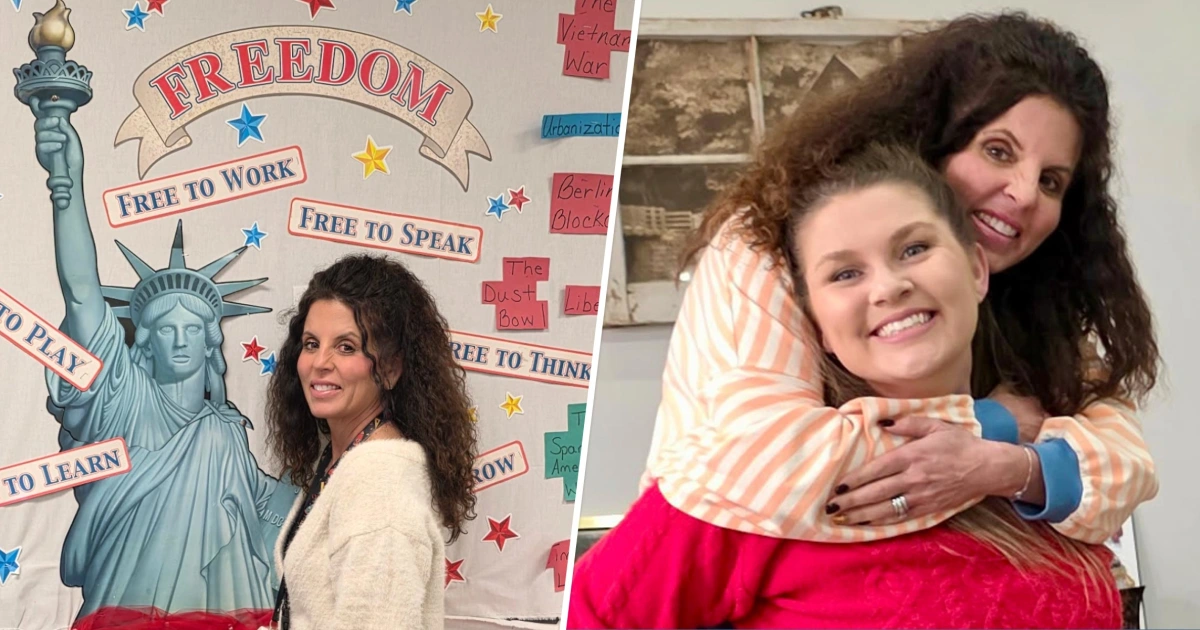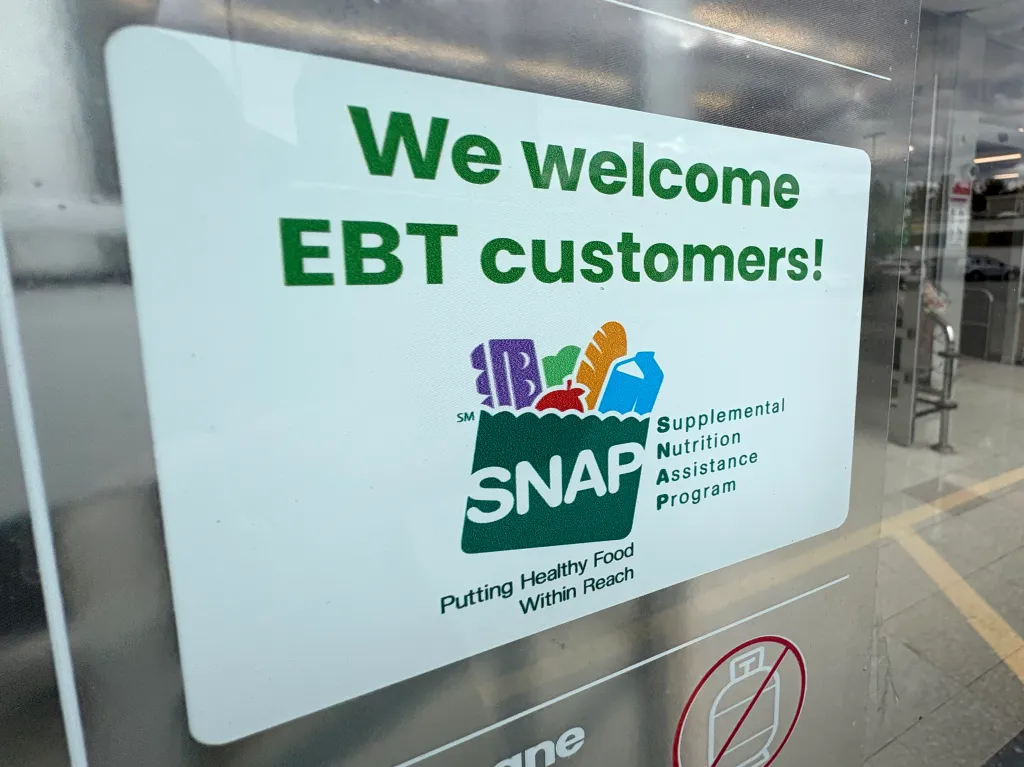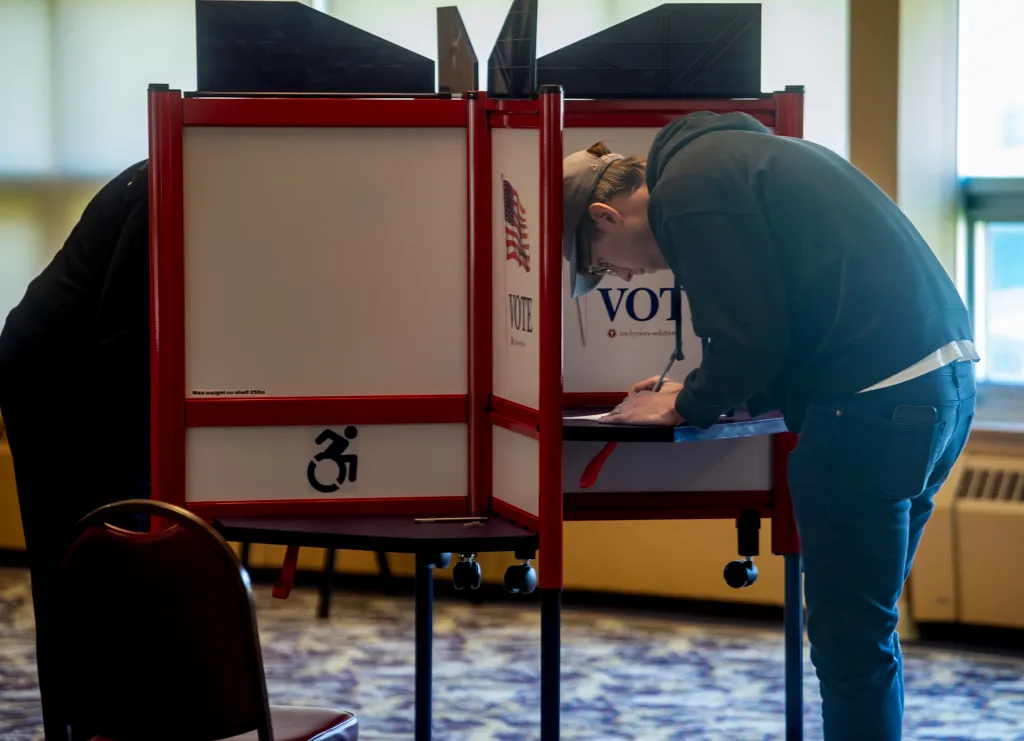Copyright TODAY

When Tosha Alexander was 17, her world was unraveling. Her father had died, and with her mother unable to keep their lives together, foster care became the next stop in her journey. Then her history teacher, Brea Kitts, did something extraordinary. Without hesitation, Kitts — who was a single mother — stepped in and took legal custody. She gave Alexander not just a roof over her head, but a home, a sense of safety, and a chance to finish high school with her friends. Alexander is just one of many students who have felt the impact of Kitts' compassion. For 27 years, she has taught high school American history to teens in rural Appalachian communities along the Ohio River, places hollowed out by the collapse of rail yards, factories and coal jobs in the 1980s, and later scarred by the opioid epidemic. Many of the students she has taught — at both River Valley and Chesapeake High Schools — have experienced homelessness, living at motels or sleeping on the couches of relatives. In Kitts’s classroom, the impact is impossible to miss. Students arrive hungry. Some wear the same clothes day after day. Parents count the miles to the nearest food bank, weighing the cost of gas against the cost of groceries. Kitts keeps snacks and hygiene products in a small drawer for anyone who needs them, a quiet act of care in a place where need is constant. “We have a large number of kids that actually come to school to shower because they don’t have running water at home,” Kitts, 50, tells TODAY.com. Consistency That Leads To Academic Success The work is relentless. Teaching in a low-income school means doing far more than teaching. Kitts is part educator, part social worker, part counselor. It all follows her home: the stories that linger after the final bell and the kids she worries about at night, understanding that no matter how much she gives, it will never be enough. And yet, she stays. “These are my kids,” Kitts says, simply. “If I don’t stay, who will?” If Kitts were to leave, it wouldn’t just be a loss, it would leave a void. In a place where instability is common, she offers something rare: consistency. Her TikTok page is filled with comments from current and former students, jokes and gratitude — small testaments to the way she’s changed their lives. But their affection is matched by results. In a district where many students struggle to pass state exams, her classes are among the few that consistently meet or exceed the benchmarks in American history. For teenagers who have been told, implicitly or outright, that success is out of reach, her classroom proves otherwise. It’s proof of what’s possible when someone refuses to give up on them. “We’re the only indicator at our high school,” Kitts says, referring to Ohio’s state performance benchmarks. “They take algebra, English, geometry, biology and American history. The only benchmark our school meets is in American history. You need at least 80% of students to pass, and my kids do it every year.” “She really gets to the know the kids and their families,” says Doug Hale, superintendent of the Chesapeake Union Exempted Village School District. “She’s got a big heart, and it shows ... We’ve got a lot of good teachers here, but Brea leads that charge. She makes those real connections.” Ask Kitts how she does it, and she shrugs. “I tell people all the time, if you don’t have relationships, you don’t have anything. You can have all the knowledge in the world, and I’m probably not the most knowledgeable about history, I’m no professor. But I’m good at building relationships and helping kids love history. They like me, and I like them. That’s the key.” “If they’re hungry, they’re not learning,” she adds. So she feeds them, granola bars, fruit cups, whatever she has stocked in her desk drawer. Sometimes she slips a student a clean T-shirt or deodorant, gestures that preserve dignity as much as comfort. “You have to take care of who they are first,” Kitts says. “Once they know you see them — really see them — they’ll work for you. They’ll try.” Teaching With Kindness and Respect Some teachers raise their voices to keep order. Kitts does the opposite. “I’m really careful to always keep a calm voice,” she says. “If kids live in fight-or-flight mode, that can be really triggering, even if someone else is getting in trouble. You have to be careful. You don’t want to set them off.” Kitts explains her philosophy for reaching Appalachian students this way. “It’s about 80 to 90% relationship, and the rest is learning,” she says. “If you can build that relationship, you can get them to walk through fire for you.” Her guiding principle is simpler still: Be real, be kind and treat teenagers like people. At the start of each year, she sets only one rule: no one is allowed to talk badly about another student or teacher. In return, she promises never to let anyone, speak badly about them. She also never reads student records before the school year begins. “Whatever they show me, that’s all I know,” Kitts says. “Kids grow and change. I want to meet who they are now, not who someone says they were.” Her approach can raise eyebrows with administrators. She ignores the dress code, for instance. “You’ve got to pick your battles,” she says. “If you call a kid out for what they’re wearing, they’ll never forget how that felt. So if you show up, I’m teaching you.” Kitts is humble. She’s never sought attention for going above and beyond, and when TODAY first reached out, she thought it was a joke. Now 33, Alexander, who has called Kitts "Mom" since she took her in, isn't surprised. Alexander had been living in a trailer with holes in the floor, stove used for heat, and little attention. Suddenly, she was eating home-cooked meals and riding the 45-minute journey to school with Kitts, who she calls a “pocket full of sunshine.” “Those are some of my best memories, singing in the car and planning for the future,” Alexander tells TODAY, her voice breaking with emotion. As she reflects now, she realizes just how much Kitts, then a single mom, was struggling financially. “She had a basement, and to me, that was rich!” Alexander says, laughing through tears. “I remember this so clearly,” Kitts’s son, Gunnar McClung, now 25, tells TODAY. “I was in fifth grade, and I get this phone call. My mom goes, ‘Hey! You have a sister now!’ I don’t think I was surprised. My mom is just that cool. She will do absolutely anything for these kids.” “When you take custody, there’s no assistance like foster care,” Kitts says. “We had to be really frugal. A lot of our meals came from my parents’ house.” Alexander isn’t surprised by the outpouring of admiration on Kitts’s TikTok posts: "The number of lives you have touched and impacted are immeasurable. The love you share in the classroom and your world makes a positive difference. I love and miss you." "I wouldn’t be here today without you! You were my safe space when I was in school. I’m forever grateful to have you in that portion of my life." "You influenced my life so much more than you know! learning history from you taught me so much empathy and grew my passion for politics and social justice." "Your room in high school was my safe place." “She’s incredible,” Alexander says. “Teaching in schools with extreme poverty isn’t easy, but all of her students succeed because she makes you listen, and makes you want to learn.” She recalls a recent trip to Pittsburgh, where she took her boyfriend to a history museum. “That’s because of Mom,” Alexander says, her voice softening. “She’s the reason I love history.” “I still think this is so funny, that anyone wants to do a story about me,” Kitts says, before hanging up to get ready for parent-teacher conferences. It’s a humble sign-off from a teacher who has shaped lives in ways that will echo for years to come. “What Brea has done for us,” Alexander says, “it’s more than teaching. She’s shaped how we see the world, and what we believe is possible.”



